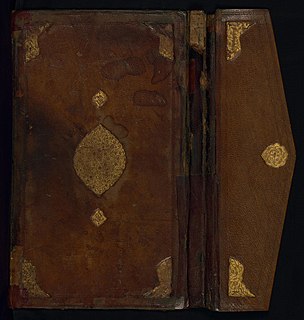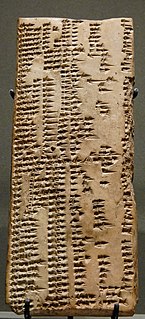 W
WA glossary also known as a vocabulary or clavis, is an alphabetical list of terms in a particular domain of knowledge with the definitions for those terms. Traditionally, a glossary appears at the end of a book and includes terms within that book that are either newly introduced, uncommon, or specialized. While glossaries are most commonly associated with non-fiction books, in some cases, fiction novels may come with a glossary for unfamiliar terms.
 W
WAbrogans, also German Abrogans or Codex Abrogans, is a Middle Latin–Old High German glossary, whose preserved copy in the Abbey Library of St Gall is regarded as the oldest preserved book in the German language.
 W
WThe Abstrusa Glossary is a glossary of Latin from the 7th or 8th century AD. Typical of such glossaries, it is named after its first lemma, abstrusa.
 W
WGlossarium Eroticum is a Latin-language dictionary of sexual words and phrases, and of many pertaining to the human body or considered to be obscene, by Pierre-Emmanuel Pierrugues, published in 1826. It lists definitions and excerpts Old Latin and Classical Latin writers such as Plautus, Juvenal, Petronius, and Seneca in examples, and includes some Medieval Latin as well.
 W
WThe cuneiform lexical lists are a series of ancient Mesopotamian glossaries which preserve the semantics of Sumerograms, their phonetic value and their Akkadian or other language equivalents. They are the oldest literary texts from Mesopotamia and one of the most widespread genres in the ancient Near East. Wherever cuneiform tablets have been uncovered, inside Iraq or in the wider Middle East, these lists have been discovered.
 W
WSvenska Akademiens ordlista, abbreviated SAOL, is a glossary published every few years by the Swedish Academy. It is a single volume that is considered the final arbiter of Swedish spelling. Traditionally it carries the motto of the Swedish Academy, Snille och Smak, on its blue cloth cover.
 W
WThe Urra=hubullu is a major Babylonian glossary or "encyclopedia". It consists of Sumerian and Akkadian lexical lists ordered by topic. The canonical version extends to 24 tablets. The conventional title is the first gloss, ur5-ra and ḫubullu meaning "interest-bearing debt" in Sumerian and Akkadian, respectively. One bilingual version from Ugarit [RS2.(23)+] is Sumerian/Hurrian rather than Sumerian/Akkadian.